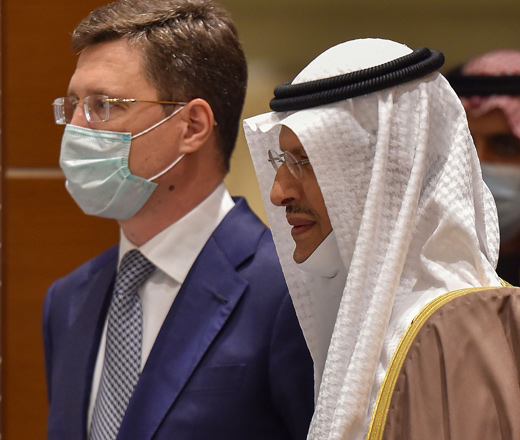RIYADH — Saudi Arabia and Russia on Saturday said they backed each other ahead of a key OPEC+ oil summit, following a tumultuous year of differences over oil production and volatile prices.
Earlier this month, the 13-member Organisation of the Petroleum Exporting Countries (OPEC), plus allies including Russia — a group known as OPEC+ — said that from January 2021 they would raise production by 500,000 barrels per day.
Saudi Arabia’s Oil Minister Prince Abdulaziz Bin Salman said the OPEC+ cooperation charter had brought the group together, producing "good results".
"That's why it should be perpetuated," he told reporters in a broadcast on state-run Al Ekhbariya TV.
Russian Deputy Prime Minister Alexander Novak said Moscow "once again confirmed our loyalty" to existing agreements.
"We plan to work together in order to achieve a balanced situation... and to propose solutions aimed at stabilising the market," Novak said.
OPEC+ will hold an online summit on January 4, while Riyadh and Moscow are due to hold talks in March, a meeting hoped to be "in person", Prince Abdulaziz said.
At the start of the year, a price war had pitted Saudi Arabia against Russia, the third and second largest oil producers respectively, as the oil market was hit hard by the COVID-19 pandemic.
But faced with Moscow's refusal to reduce production in line with OPEC cuts, Riyadh had sharply increased its own, causing prices to plummet.
Earlier this month, the OPEC+ group struck a deal to increase production over coming months.
